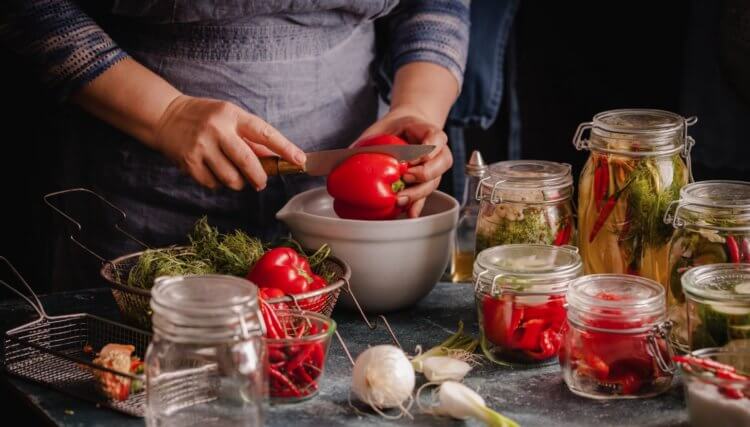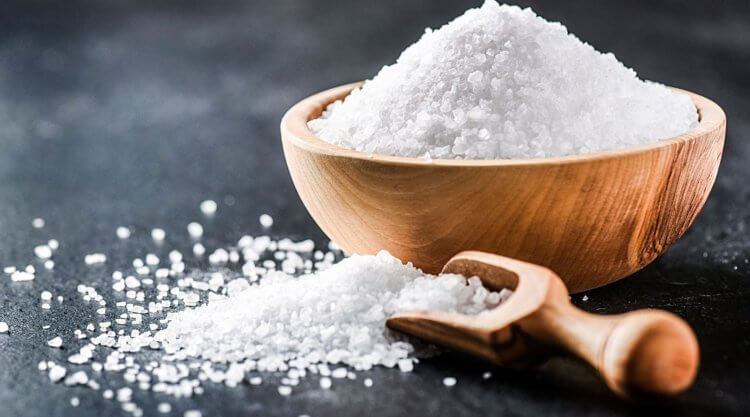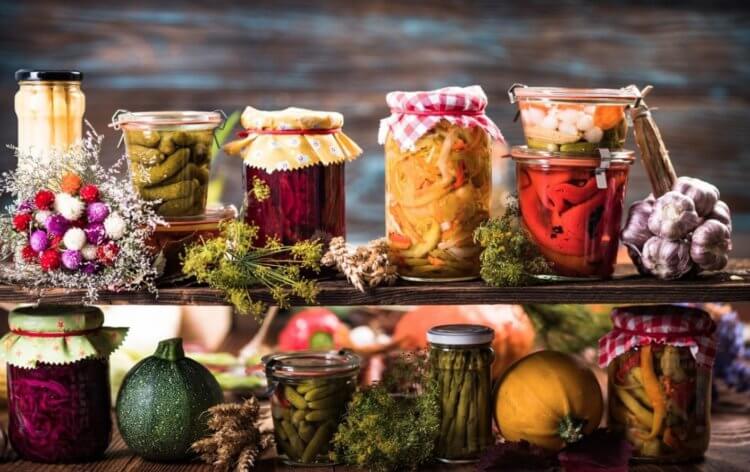Pickles appear on the table of every family from time to time. We are talking about pickles, sauerkraut, peppers, mushrooms and other canned foods. They not only have a pleasant, sour taste, but their main advantage is their long shelf life. In addition to this, pickles contain substances that aid digestion and also retain many of the vitamins and minerals in vegetables. We have long been accustomed to jars of delicious foods that are stored for a long time in our refrigerators and cellars. But most people have no idea how pickles are stored for a long time. Now we will fill the gap in your knowledge.

Salted foods can be stored for several months and become tastier. Image: pokayadoma.ru
Pickles include vegetables and other foods suitable for preservation and, as the name suggests, a large amount of table salt.Pickles are always placed in glass jars, which are tightly closed with a lid to prevent air from getting inside. In short, the secret to the long shelf life of pickles lies in three factors: high salinity, acidity and lack of contact with air.
Why food spoils
To understand why pickles last so long , you need to figure out why food spoils in the first place. The main reason for their rotting is the presence of microorganisms such as bacteria and mold.
If the product is kept warm, bacteria begin to multiply on its surface. These microscopic creatures begin to use carbohydrates, proteins and fats for their own growth and reproduction. At the same time, they release acids and gases, which greatly change the taste, smell and structure of products – these secretions cause poisoning in people and other living organisms.

Food spoils due to microbial activity. Image: kto-chto-gde.ru
Bacteria can become food for mold – fungi that grow on food and produce toxic substances. They secrete enzymes into vegetables and other foods that break down nutritious carbohydrates, proteins and fats.
In general, food spoilage is caused by microscopic organisms that secrete enzymes that break down nutrients. As a result, products change color, begin to smell bad and cause poisoning due to the presence of toxins.
Everyone should know this:What happens if you accidentally eat mold and is it possible to eat it? cut?
Why do pickles last a long time?
When food is saturated with salt and finds itself in an acidic environment without air, bacteria and mold have no chance of survival.
Salt is a strong preservative – a substance that increases the shelf life of foods. When bacteria and mold are exposed to highly salty water, the liquid inside them begins to flow into the brine. As a result, microorganisms lose moisture, die and cannot spoil food.

Salt is a powerful and accessible preservative. Image: sport24.ru
Salt water also creates an acidic environment, which also has a detrimental effect on microorganisms. The acid destroys their outer shell, making them vulnerable – with prolonged exposure, it simply kills them.
In addition, there is no air in the sealed cans. When we seal jars of pickles, a heating process occurs that causes the air inside the jar to expand and escape through the rubber ring of the lid. During subsequent cooling, a vacuum is formed, which helps preserve the product. In the absence of air, most microorganisms cannot survive.
Read also:Scientists suggest replacing meat with mold – it’s nourishing, healthy and environmentally friendly
What are the benefits of pickles
Some people may believe that pickles do not provide health benefits and it is best to eat fresh vegetables. This is partly true – if there is a choice, preference should be given to fresh food.
But we don’t need to think that canned vegetables are harmful to our health. It is known that pickles contain a lot of sodium, which provides our body with proper water metabolism. It is also needed for the correct transmission of nerve impulses and muscle contraction.

Pickles contain many useful substances. Image: binomen.ru
Sauerkraut is also useful because it promotes proper digestion, normalizes cholesterol levels and supports strong immunity. In addition, sauerkraut contains few calories, and is a good dietary product.
Salted tomatoes, in turn, contain vitamins A, C, K and B. They are rich in fiber – if it is consumed regularly enters the human body, you can forget about many digestive problems.
Have you subscribed to our Zen channel? You can leave comments there!
If you are interested in this topic, start reading the article “The benefits and harms of pickles for the winter – everything you need to know before eating them” right now. You will learn a lot of interesting things!